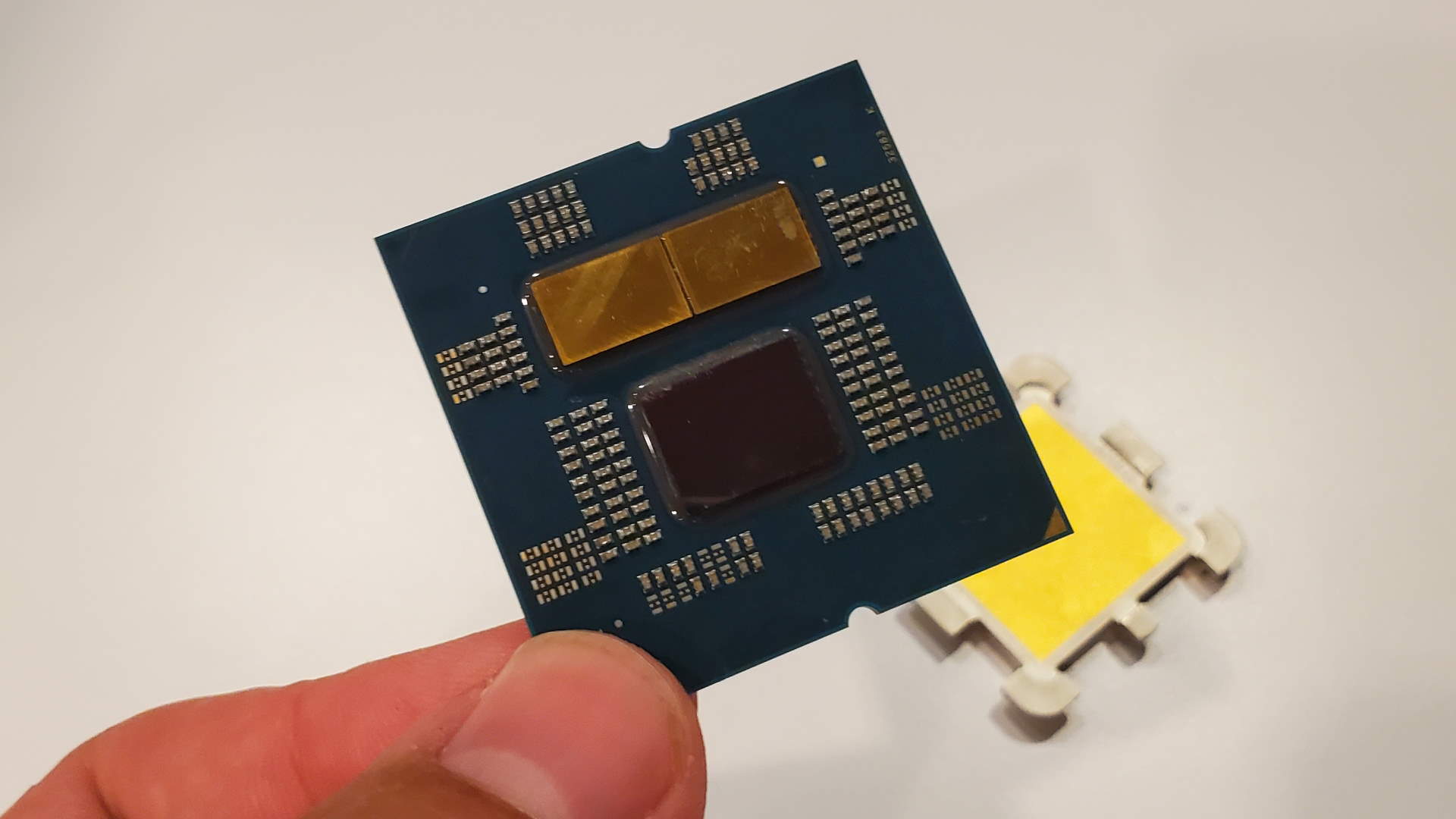Serial and somewhat hit-and-miss YouTube ‘leak’ channel, Moore’s Law is Dead, has unloaded some technical details and performance expectations for AMD’s upcoming Zen 5 and 6 CPU architectures. The headline takeaway is arguably that it involves more modest performance gains than previous rumours.
Just in case you’ve forgotten, AMD’s current Ryzen 7000 CPUs use the Zen 4 architecture. That was seen as a relatively modest improvement over Zen 3, offering as it did 13% performance gains on average over Zen 3 in terms of IPC, or instructions per clock.
In other words, for a single software thread running on a single CPU core at the same clock speed on both architectures, Zen 4 is on average 13% faster.
So, what can we expect from Zen 5 and 6? According to MLID, Zen 5 (optimistically codenamed Nirvana), will deliver between 10% and 15% IPC gains, with Zen 6 adding another 10% when it arrives as a more ‘derivative’ architecture.
For historical context, AMD claimed the Zen 3 architecture in Ryzen 5000 CPUs managed IPC gains of 19% over Zen 2. In pure IPC terms, then, neither Zen 5 or Zen 6 look terribly exciting. Worthwhile gains, to be sure, especially when compounded. Taken together and assuming the top end of the scale for Zen 5, that would make for 26.5% IPC gains overall from Zen 4 to Zen 6.
AMD has claimed 13% IPC gains on average for Zen 4 over Zen 3. (Image credit: AMD)
Of course, there’s more to CPU performance than IPC. So what else is MLID claiming? The ‘leak’ includes some fairly granular detail including an increase from 6 to 8-wide instruction dispatch, six ALUs per core instead of four, and various other upgrades. Big improvements for AVX floating-point performance are claimed, too. In fact, the changes are comprehensive enough that the forecast IPC gains look rather modest.
Indeed, previous Zen 5 ‘leaks’ indicated IPC gains of around a 23% improvement over Zen 4. The other major detail is a new 16-core complex. AMD’s current core complex top out at eight cores. What’s not totally clear is whether the new 16-core complex will contain full Zen 5 cores or smaller, low-power Zen 5c cores.
What’s more, Zen 6 is said to have 32-core complexes. Again, it’s unclear whether that’s 32 Zen 6 cores or Zen 6c cores. Given that it would have to cut down for an eight or 12-core chip, you’d have to think those big core complexes would be reserved for the lighter weight c-class cores.
A further note of context is that the ‘leaked’ AMD slide in the MLID video is for AMD’s Epic server CPUs, not Ryzen desktop chips. Though previously, the core complexes have been identical for Epic and Ryzen.
For Zen 3, AMD claimed an impressive 19% IPC over Zen 2. (Image credit: AMD)
Moreover, AMD’s Zen ‘c’ cores are much closer to its full-power Zen cores than Intel’s Performance and Efficiency cores. So, a Zen 5 Ryzen CPU with, say, eight Zen 5 cores and 16 Zen 5c cores would be a bit of a monster.
(Image credit: Future)
Best CPU for gaming: The top chips from Intel and AMD.
Best gaming motherboard: The right boards.
Best graphics card: Your perfect pixel-pusher awaits.
Best SSD for gaming: Get into the game ahead of the rest.
Zen 6 is also said to offer new packaging techniques. Where previous Zen-series desktop CPUs have used an IO die and up to two core complexes or compute dies laid out next to each other, Zen 6 is said to stack the compute dies on top of the IO die, the idea being a reduction in latency sufficient to match that of a single monolithic die for everything. Time will tell if that turns out to be true and what impact it will have on performance.
It’s also worth remembering that even if this information is from AMD itself, this isn’t final specs and the CPUs that actually go on sale could be faster or indeed slower than these figures.
As for timing, Zen 5 is expected next year with Zen 6 in 2025 or perhaps 2026. We’ll be watching closely to see how Zen 5 matches up compared to Intel’s upcoming Arrow Lake CPUs, also due next year.











